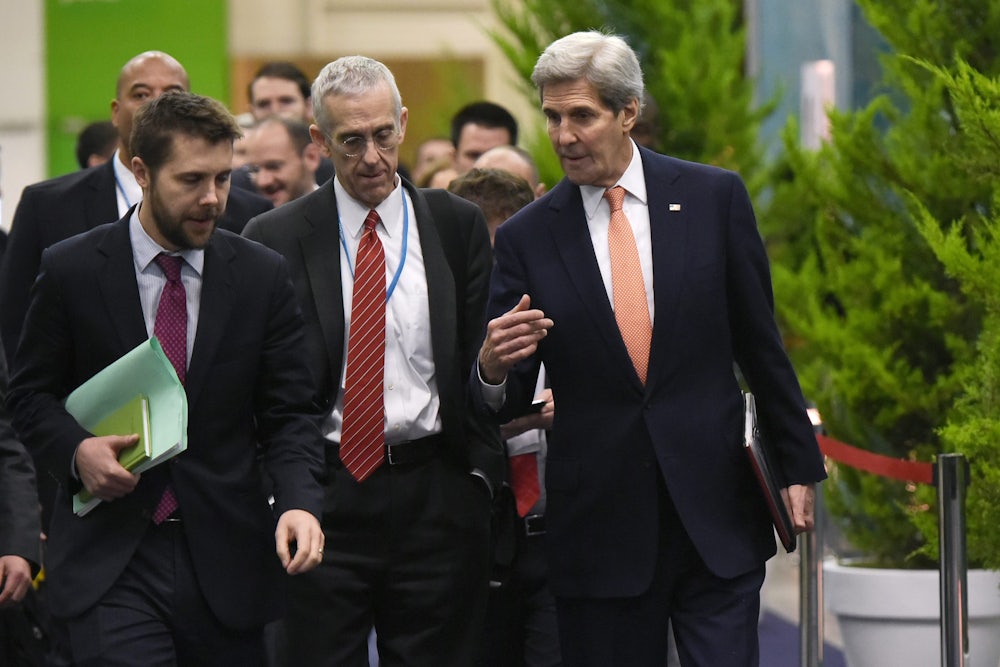After an exhausting day of around-the-clock negotiations, French Foreign Minister Laurent Fabius released a new draft text for a global climate change agreement Thursday evening in Paris. This draft stands at 27 pages and 50 brackets, and reads much more easily than the heavily bracketed, 29-page version a day ago. Of course, there are some exceptions: There’s still as much uncertainty as ever surrounding how to define differentiation, long-term ambition, and finance.
Reporter to Laurent Fabius: How are we closer to a deal if the same issues remain unresolved? Fabius: "We are much closer." Walks away
— Andrew Restuccia (@AndrewRestuccia) December 10, 2015To turn this into a final agreement, the conference will reconvene with an informal model of negotiations, a South African process called an indaba, that is intended to move countries toward compromise.
“It’s time to come to an agreement,” Fabius said, emphasizing that he still hopes to deliver a final text tomorrow. “I think, dear friends, that we will make it.”
Here’s our progress report on COP21. Blue bars indicate progress toward the goals, compared to yesterday, red bars indicate backward momentum, and gray bars indicate no change:
Here’s a roundup of the biggest news from around the conference:
- Reporters have placed their bets on when the conference will end, and the pool is not optimistic about the scheduled Friday conclusion. (New Republic)
- New Zealand and Australia make the case for a carbon market built in to the agreement, a controversial issue for some countries. (Carbon Pulse)
- Indian Prime Minister Narendra Modi and French President Francois Hollande released a collaborative book that reads like an instructive on critical theory and ecotheology. (New Republic)
- Every country signed off on the last draft text, meaning heartening progress. But contentious issues like finance are still on the decision table. (Slate)
- Sean Paul performed at COP21 tonight. He’s just one of many random celebrities to attend the conference. (New Republic)
- An explainer on the remaining disagreements to be resolved as negotiators work into the wee hours. (New York Times)
- Ted Cruz goes off on the liberal plot that is global warming. (NPR)
- UN negotiations are no stranger to acronyms, but this one may be the best—and most important—yet. (The Atlantic)
Read our previous progress reports:
